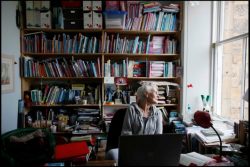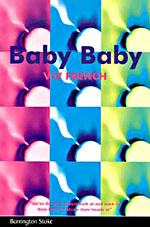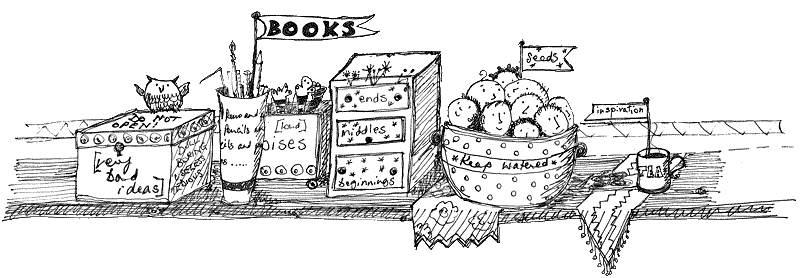Vivian French: What I’m thinking about … why children don’t read
The Guardian
August 15, 2012
I’m thinking about Ruby, aged nearly eight. It’s her turn to read out loud.
“Duh … Orh … Guh … “
Teacher: “Come along, Ruby. Surely even you can read that?”
Ruby studies the page. There’s a picture. A clue. She smiles. “Squirrel!”
The teacher rolls her eyes at me. “You see? She just doesn’t try.”
I think Ruby IS trying. She’s made a reasonable guess at the badly drawn picture of a dog with a curly tail. It’s the letters she can’t fathom. And I have every sympathy for her. Reading is a strange, curious and indefinable skill – and for some children it can assume the proportions of a nightmare.
I’m not a reading expert in any way, shape or form, but I’ve spent many hours in schools creating participatory stories with groups of children (they give me the ideas; I act as scribe). And what I DO know is that often the brightest and most imaginative contributors are those who struggle with decoding letters on a page. They’re not stupid; far from it. But they’re often made to feel that they are. And that makes me angry, because I was made to feel that way too.
I wouldn’t describe myself as dyslexic, but I did muddle letters and misread words, especially when reading out loud, and in the 1950s/1960s, teachers weren’t slow to comment. There’s far more awareness these days, and some very impressive research – but I still hear that exasperated tone of voice. ‘Surely even YOU can read that?’ And it shocks me every time.
When I meet kids, I always ask, “What do talking, reading and writing have in common?” The answer, of course, is words. So then I ask, “So who’s good at talking?” And they all are. So we practise our words (because practice makes perfect, and some words are far more interesting and evocative than others), and we write a story, and edit it, and illustrate it – and then we read it to the rest of the school. And then we put it in the library, having made sure that all the authors’ names are on the cover. And guess what? My non-reading ducklings have suddenly become swans. They’ve achieved author status.
Obviously this is no quick fix, but I love these sessions because I can demonstrate the vivid imagination and sense of story that can go undiscovered in children who find reading problematic. It also, hopefully, gives them the confidence to go on trying. Confidence is a wonderful thing; believe you can do something, and eventually – it may not be easy – you might well get there. Believe you can’t do it, and you never will.
So – the events I have selected for this year’s Edinburgh International Book Festival are for Ruby (and others like her) to enjoy. I’ve chosen events that offer story making in all kinds of different forms; ballads, storyboards, pictures, oral storytelling, plays. If it helps Ruby towards believing in herself – that’s wonderful. Job done.
Vivian French is curating a strand of events called “The Power of Words Through Play” at the Edinburgh International Book Festival. She talks about The Gift of Dyslexia today (15 August) at 5pm




